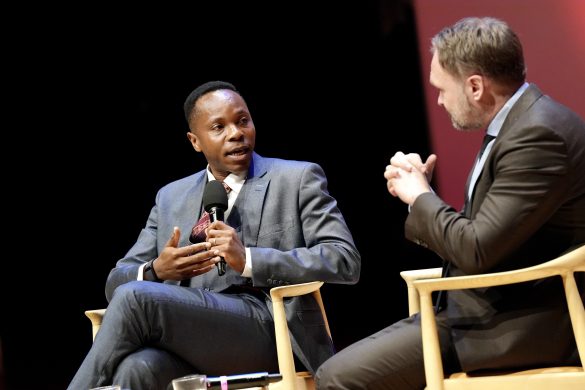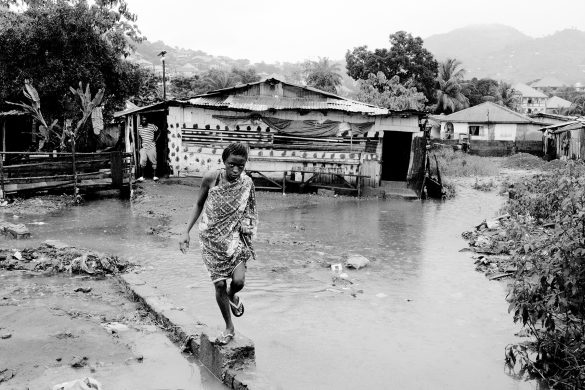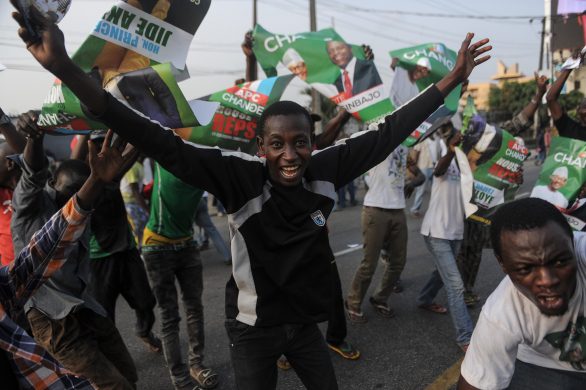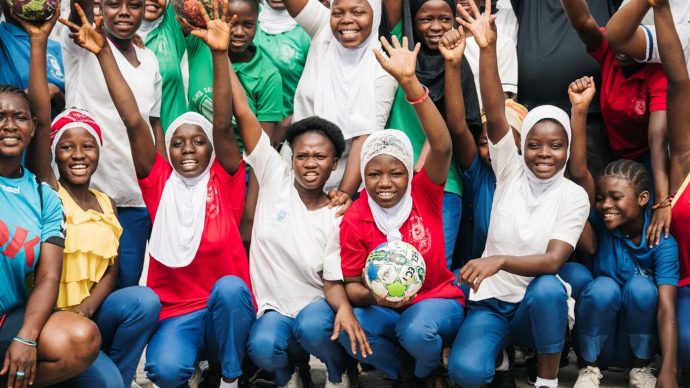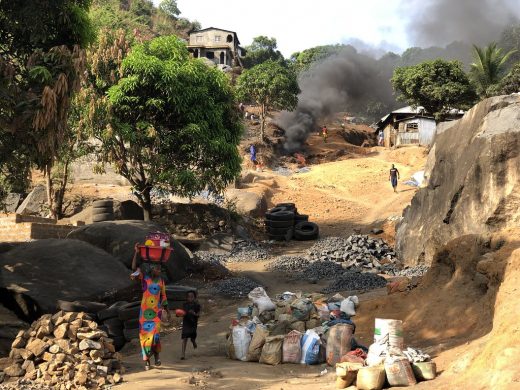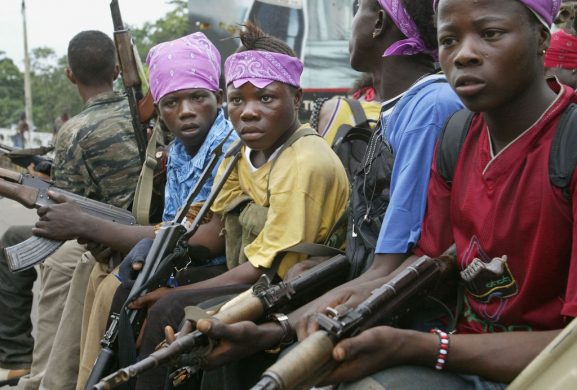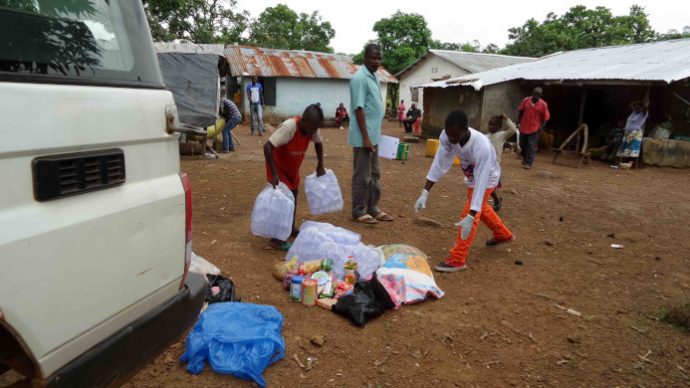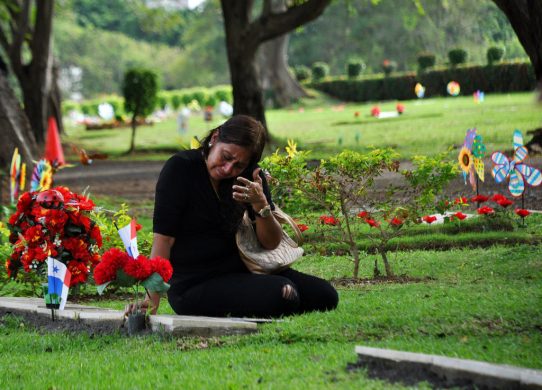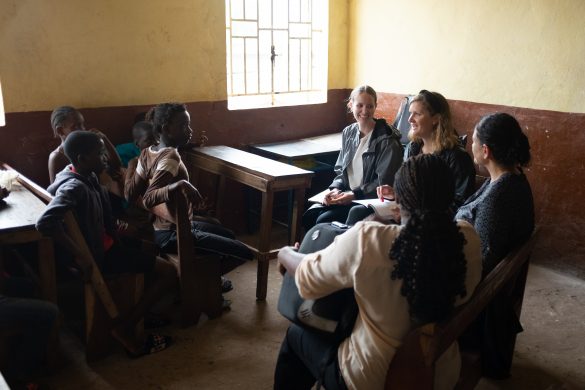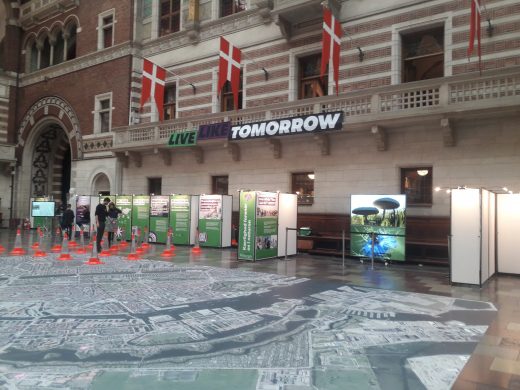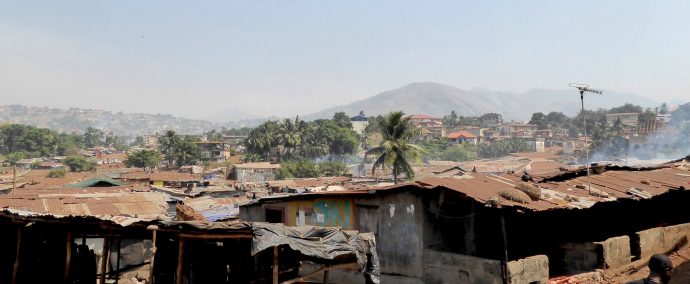Large numbers of rape cases, especially of minors, are going unreported in Sierra Leone, with few survivors of sexual violence willing or able to approach the authorities.
Many families are deterred from pursuing legal cases by social stigma, a lack of faith in the justice system and an inability to afford legal representation or even transport costs to the court.
Instead, people turn to traditional justice mechanisms following such cases of abuse.
Sitting in a makeshift hut in her home village of Towama in Bo province, Saffie Kay (not her real name) wept as she related how her uncle had raped her.
She said she would never get justice for the attack. Issues of family honour meant that the issue had been dealt with through arbitration.
Under Sierra Leonean law, rape carries a prison sentence of a minimum of five and a maximum of 15 years.
Although there is a legal and investigative infrastructure in place that in theory supports victims and ensures justice, in practice this process often does not work.
After a rape is reported and basic evidence collected, the complainant is referred to the local Rainbow Clinic, state centres that treat victims of sexual abuse and are supported by the International Rescue Committee of the Red Cross.
A case is then opened and statements taken before court proceedings are initiated.
Attacks against those under the age of 18, the age of consent in Sierra Leone, are prosecuted as sexual penetration. The crime of rape is applied to only those cases where the victim is aged over 18. The penalties are the same in either instance.
Abortion is illegal
Rita Kamara is the administrative officer of the Family Support Unit (FSU) the police division that deals with cases of sexual abuse, in the capital Freetown.
Rape survivors who do not report their cases and gain access to appropriate treatment also risk severe health complications including sexually transmitted disease.
In Kenema, Patrick, the father of a young girl who was raped, said that his daughter had suffered appalling physical consequences.
Læs hele artiklen hos Institute for War and Peace Reporting (IWPR)
Denne artikel er en del af IWPR's serie Global Voices. Find flere artikler i serien her.


